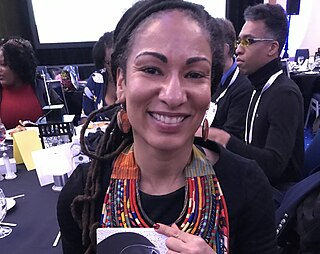Artificial intelligence (AI), in its broadest sense, is intelligence exhibited by machines, particularly computer systems. It is a field of research in computer science that develops and studies methods and software that enable machines to perceive their environment and uses learning and intelligence to take actions that maximize their chances of achieving defined goals. Such machines may be called AIs.

Eliezer S. Yudkowsky is an American artificial intelligence researcher and writer on decision theory and ethics, best known for popularizing ideas related to friendly artificial intelligence. He is the founder of and a research fellow at the Machine Intelligence Research Institute (MIRI), a private research nonprofit based in Berkeley, California. His work on the prospect of a runaway intelligence explosion influenced philosopher Nick Bostrom's 2014 book Superintelligence: Paths, Dangers, Strategies.
Weak artificial intelligence is artificial intelligence that implements a limited part of the mind, or, as narrow AI, is focused on one narrow task.
Robot ethics, sometimes known as "roboethics", concerns ethical problems that occur with robots, such as whether robots pose a threat to humans in the long or short run, whether some uses of robots are problematic, and how robots should be designed such that they act 'ethically'. Alternatively, roboethics refers specifically to the ethics of human behavior towards robots, as robots become increasingly advanced. Robot ethics is a sub-field of ethics of technology, specifically information technology, and it has close links to legal as well as socio-economic concerns. Researchers from diverse areas are beginning to tackle ethical questions about creating robotic technology and implementing it in societies, in a way that will still ensure the safety of the human race.
The ethics of artificial intelligence covers a broad range of topics within the field that are considered to have particular ethical stakes. This includes algorithmic biases, fairness, automated decision-making, accountability, privacy, and regulation. It also covers various emerging or potential future challenges such as machine ethics, lethal autonomous weapon systems, arms race dynamics, AI safety and alignment, technological unemployment, AI-enabled misinformation, how to treat certain AI systems if they have a moral status, artificial superintelligence and existential risks. Some application areas may also have particularly important ethical implications, like healthcare, education, or the military.
Machine ethics is a part of the ethics of artificial intelligence concerned with adding or ensuring moral behaviors of man-made machines that use artificial intelligence, otherwise known as artificial intelligent agents. Machine ethics differs from other ethical fields related to engineering and technology. It should not be confused with computer ethics, which focuses on human use of computers. It should also be distinguished from the philosophy of technology, which concerns itself with technology's grander social effects.

Francesca Rossi is an Italian computer scientist, currently working at the IBM Thomas J. Watson Research Center as an IBM Fellow and the IBM AI Ethics Global Leader.

Artificial intelligence in healthcare is the application of artificial intelligence (AI) to copy human cognition in the analysis, presentation, and understanding of complex medical and health care data, or to exceed human capabilities by providing new ways to diagnose, treat, or prevent disease. Specifically, AI is the ability of computer algorithms to arrive at approximate conclusions based solely on input data.

Joy Adowaa Buolamwini is a Canadian-American computer scientist and digital activist formerly based at the MIT Media Lab. She founded the Algorithmic Justice League (AJL), an organization that works to challenge bias in decision-making software, using art, advocacy, and research to highlight the social implications and harms of artificial intelligence (AI).

Meredith Whittaker is the president of the Signal Foundation and serves on its board of directors. She was formerly the Minderoo Research Professor at New York University (NYU), and the co-founder and faculty director of the AI Now Institute. She also served as a senior advisor on AI to Chair Lina Khan at the Federal Trade Commission. Whittaker was employed at Google for 13 years, where she founded Google's Open Research group and co-founded the M-Lab. In 2018, she was a core organizer of the Google Walkouts and resigned from the company in July 2019.

Rumman Chowdhury is a Bangladeshi American data scientist, a business founder, and former responsible artificial intelligence lead at Accenture. She was born in Rockland County, New York. She is recognized for her contributions to the field of data science.

Timnit Gebru is an Eritrean Ethiopian-born computer scientist who works in the fields of artificial intelligence (AI), algorithmic bias and data mining. She is an advocate for diversity in technology and co-founder of Black in AI, a community of Black researchers working in AI. She is the founder of the Distributed Artificial Intelligence Research Institute (DAIR).
ACM Conference on Fairness, Accountability, and Transparency is a peer-reviewed academic conference series about ethics and computing systems. Sponsored by the Association for Computing Machinery, this conference focuses on issues such as algorithmic transparency, fairness in machine learning, bias, and ethics from a multi-disciplinary perspective. The conference community includes computer scientists, statisticians, social scientists, scholars of law, and others.
Amazon Rekognition is a cloud-based software as a service (SaaS) computer vision platform that was launched in 2016. It has been sold to, and used by, a number of United States government agencies, including U.S. Immigration and Customs Enforcement (ICE) and Orlando, Florida police, as well as private entities.
Regulation of algorithms, or algorithmic regulation, is the creation of laws, rules and public sector policies for promotion and regulation of algorithms, particularly in artificial intelligence and machine learning. For the subset of AI algorithms, the term regulation of artificial intelligence is used. The regulatory and policy landscape for artificial intelligence (AI) is an emerging issue in jurisdictions globally, including in the European Union. Regulation of AI is considered necessary to both encourage AI and manage associated risks, but challenging. Another emerging topic is the regulation of blockchain algorithms and is mentioned along with regulation of AI algorithms. Many countries have enacted regulations of high frequency trades, which is shifting due to technological progress into the realm of AI algorithms.
The regulation of artificial intelligence is the development of public sector policies and laws for promoting and regulating artificial intelligence (AI); it is therefore related to the broader regulation of algorithms. The regulatory and policy landscape for AI is an emerging issue in jurisdictions globally, including in the European Union and in supra-national bodies like the IEEE, OECD and others. Since 2016, a wave of AI ethics guidelines have been published in order to maintain social control over the technology. Regulation is considered necessary to both encourage AI and manage associated risks. In addition to regulation, AI-deploying organizations need to play a central role in creating and deploying trustworthy AI in line with the principles of trustworthy AI, and take accountability to mitigate the risks. Regulation of AI through mechanisms such as review boards can also be seen as social means to approach the AI control problem.

The Algorithmic Justice League (AJL) is a digital advocacy non-profit organization based in Cambridge, Massachusetts. Founded in 2016 by computer scientist Joy Buolamwini, the AJL uses research, artwork, and policy advocacy to increase societal awareness regarding the use of artificial intelligence (AI) in society and the harms and biases that AI can pose to society. The AJL has engaged in a variety of open online seminars, media appearances, and tech advocacy initiatives to communicate information about bias in AI systems and promote industry and government action to mitigate against the creation and deployment of biased AI systems. In 2021, Fast Company named AJL as one of the 10 most innovative AI companies in the world.

Rashida Richardson is a visiting scholar at Rutgers Law School and the Rutgers Institute for Information Policy and the Law and an attorney advisor to the Federal Trade Commission. She is also an assistant professor of law and political science at the Northeastern University School of Law and the Northeastern University Department of Political Science in the College of Social Sciences and Humanities.

Black in AI, formally called the Black in AI Workshop, is a technology research organization and affinity group, founded by computer scientists Timnit Gebru and Rediet Abebe in 2017. It started as a conference workshop, later pivoting into an organization. Black in AI increases the presence and inclusion of Black people in the field of artificial intelligence (AI) by creating space for sharing ideas, fostering collaborations, mentorship, and advocacy.
Automated decision-making (ADM) involves the use of data, machines and algorithms to make decisions in a range of contexts, including public administration, business, health, education, law, employment, transport, media and entertainment, with varying degrees of human oversight or intervention. ADM involves large-scale data from a range of sources, such as databases, text, social media, sensors, images or speech, that is processed using various technologies including computer software, algorithms, machine learning, natural language processing, artificial intelligence, augmented intelligence and robotics. The increasing use of automated decision-making systems (ADMS) across a range of contexts presents many benefits and challenges to human society requiring consideration of the technical, legal, ethical, societal, educational, economic and health consequences.










